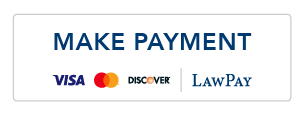SLIP AND FALL ACCIDENTS ARE MORE COMMON THAN YOU WOULD THINK
Slip and fall accidents are often brushed aside or dismissed as unserious events or as being the fault of the person who fell. A slip and fall is extremely common, and thankfully, usually leads to bumps and scrapes at the worst. Sadly though, many slips and falls lead to broken bones, serious head injuries and even death. These accidents can occur nearly anywhere, including at work, in a store or business, on a sidewalk, or in a government building. In America, slip and falls contribute to millions of dollars in medical bills, missed work, and in pain in suffering damages each year.
After a fall occurs, many people wonder whether or not they will be able to bring a lawsuit to seek compensation for their pain and suffering, medical bills or other damages. To determine whether or not you have a case, you need to make two inquiries:
- First, you need to determine where your fall occurred and who owns or rents the property where the fall took place. Slip and fall lawsuits are based on the legal concept of premises liability, which holds a property owner or tenant responsible for any damages arising out of an injury on that person or entity’s property. In Vermont, owners of a property must make a reasonable effort to maintain a safe environment for visitors to it.
- Second, you need to determine whether the owner of the property or a tenant was negligent. You may need an attorney to help you with this one, but generally speaking the owner or renter of a property owes a duty of care to those who visit their property. This is a legal way of saying that the owner or renter of a property needs to make sure the property is safe for visitors to come visit. This level of care owed can vary drastically depending on the property at issue, but generally a property owner can be proven negligent in one of three ways:
- The owner of the property or an employee of the owner or renter directly caused your fall.
- The owner or renter of the property or an employee of the owner was aware of a dangerous condition on the property and failed to correct it.
- The owner or renter of the property had a dangerous condition on his or her property and, although unaware of the condition, should have been aware of it and taken steps to correct the issue.
WAYS IN WHICH A PROPERTY OR BUSINESS OWNER IS NEGLIGENT
Generally speaking, a business that hosts many visitors per day, such as a grocery store, hospital or popular restaurant, has a far higher duty of care standard than would the owner of a single apartment, small business, or simple plot of land. This is because they have a far higher number of visitors each day and therefore need to make sure their property is safe, stays safe and quickly is repaired when an unsafe condition is discovered. Examples of unsafe conditions can include:
- Poorly maintained or poorly lit stairways, hallways or corridors.
- Slippery or wet floors or walkways. This can include situations inside a building where a spill has occurred or a slippery object like a grape or banana is on the floor. It can also include a situation outside during a rainy, snowy or icy day. In these situations, the owner of a property has a specific period of time in which to shovel the snow, put down salt or otherwise make sure their property is safe for visitors.
The most common defense against slip-and-fall claims is that the injured person was acting carelessly and had a responsibility to know where they were going and to walk safely. However, it’s not necessarily that simple. Determining fault requires asking a series of questions, including:
- Did the injured person have a reason to be where they were? (In the case of a supermarket or public store during operating hours, the answer should be yes.)
- Was it reasonable to expect that the area they were in was hazardous?
- Was the hazardous area marked in any way so that the injured person could have avoided it?
- If the injured person tripped over something, could they have avoided it?
- Would a person acting reasonably have noticed and avoided the injury?
An experienced personal injury attorney will be able to help you figure out whether or not there is clear liability in your case, depending on the circumstances involved and the evidence available.
WHAT CAN A PROPERTY OWNER BE LIABLE FOR?
If you have determined that the owner of a property was negligent and caused your fall, you can bring a lawsuit against him or her for compensation for a number of things. If found to be negligent, the owner of the property would be liable for the Plaintiff’s medical bills, physical therapy bills, pain and suffering, lost wages, and for any costs the person had to pay for to take care of themselves while they recovered.
KRAMER LAW OFFICES: FIGHTING FOR OUR CLIENTS AND THEIR FAMILIES
Our team has built a reputation for compassionate and fierce advocacy on behalf of our clients. If you or someone you know has been injured due to the negligence of a property owner, you can reach Kramer Law by calling a 802-257-2221 or using our quick and easy contact form. We are also conveniently located in downtown Brattleboro at 42 Park Place if you would prefer to stop by. We are also happy to discuss your case remotely on Zoom if you wish.
As our client, we will take care of all of the legal, privacy and insurance related issues surrounding your case so that you are able to recover and work towards a brighter and better future.






